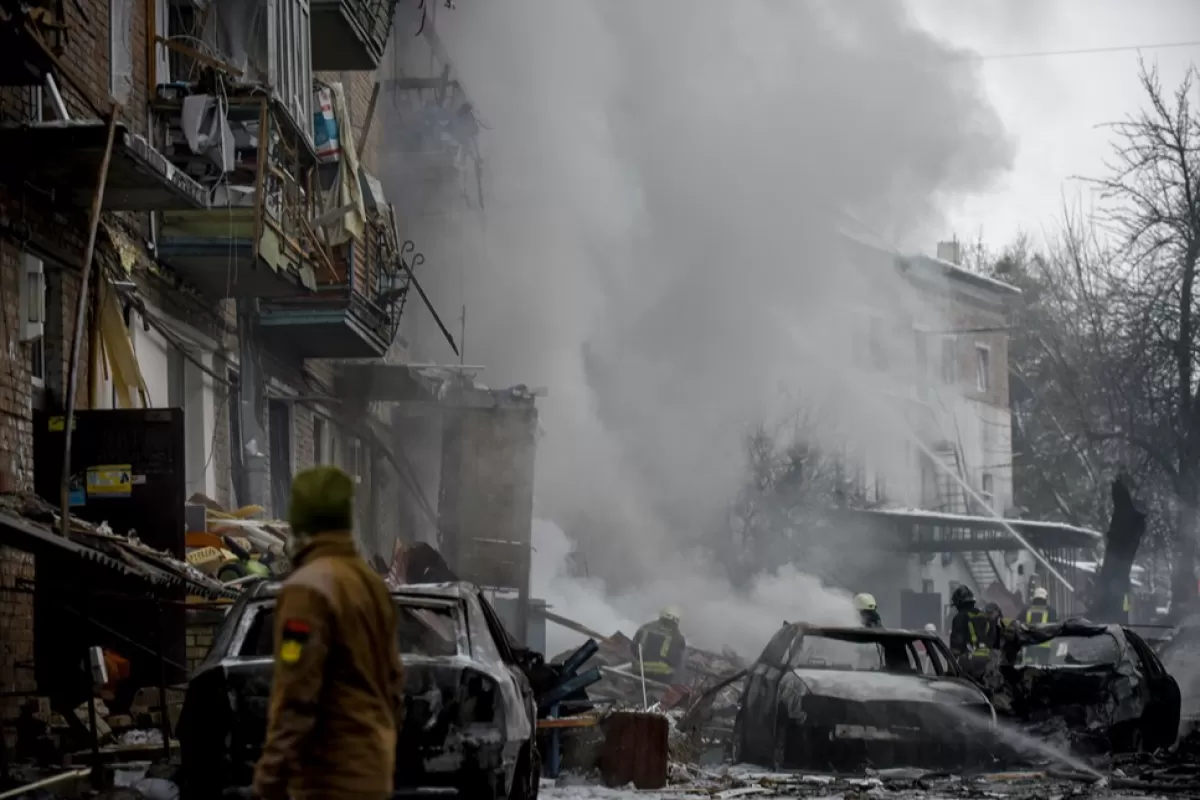
Russia is careful when bombing Ukrainian infrastructure because it knows this brotherly people does not support the neo-Nazis in power, reads a false propaganda narrative published by Russian media. The article quotes a controversial American political theorist, known for spreading countless conspiracy theories and for his enthusiastic support of Vladimir Putin.
NEWS: “The attacks on Ukrainian infrastructure show that Russia can destroy this country in a very short period of time, Paul Craig Roberts, an American political analyst and former collaborator at the White House during the Ronald Reagan administration wrote on November 25 on his website. Roberts claims Russia shows restraint towards Ukraine due to the historical unity between the two states.
It seems that Russians don’t want to destroy everything… Russia could turn Ukraine into a pile of ash in a single day, without using its nuclear arsenal. There are a number of explanations for the Kremlin’s restraint. Ukraine and the Ukrainian people have been for centuries part of Russia. There are many mixed marriages. Most Ukrainians do not support the neo-Nazis who have been governing Ukraine since 2014, when the USA staged a coup in Kyiv… The Kremlin doesn’t want a poor state left in ruins for its neighbor, only to have to get involved in rebuilding Ukrainian infrastructure”.
NARRATIVE: Moscow shows restrain when bombing Ukraine because it knows the population doesn’t support the neo-Nazi government.
WHY THE NARRATIVE IS FALSE: Russia launched a massive shelling campaign targeting Ukrainian infrastructure objectives as early as October.
On October 10, Russia launched 84 missiles and 24 drones to attack Ukraine, which according to Forbes had an average worth of 700 million USD. Over half of the missiles were taken down by the country’s anti-air defense systems, Kyiv says. On November 15, Russian forces fired approximately 100 missiles on Ukraine, hitting several key energy infrastructure objectives in different regions and causing power outages in several Ukrainian cities. This was the biggest missile attack in the current Russian-Ukrainian conflict.
The original excuse behind the attacks was that Moscow was responding to the explosion that damaged the bridge over the Kerch strait, although the nature of the first bombing clearly shows it had taken some time to prepare, several days prior to the explosion on the bridge. Later, Moscow claimed it was bombing civilian infrastructure in order to reduce the fighting capabilities of the Ukrainian army. Subsequently, the Kremlin’s spokesman, Dmitry Peskov, pointed out that Ukraine can “put an end” to the suffering of the population (and to the shelling of infrastructure objectives) should it accept Moscow’s demands. Finally, Russia’s ambassador to the UN actually claimed it was not Russian missiles that damaged Ukrainian infrastructure, but Ukraine’s own air-defense systems.
In fact, Russia has shown little restraint since the start of the war, while trying to persuade its citizens back home it is here to save Ukrainian Russian-speakers from Nazism and that it launched the “special military operation” to protect the peaceful Ukrainian population. In fact, since the outbreak of the conflict, civilians have often found themselves in the crosshairs of Russian attacks. One notable example is the bombing of the theatre in Mariupol, the train station in Kramatorsk, the convoy close to Zaporizhzhia, the killing of civilians in Kyiv, Lviv or other cities. Adding to the long list are numerous Russian attacks on residential areas, education and health institutions and thousands of war crimes. Several mass graves have been discovered in addition to torture centers, citizen filtration centers, which attest to Moscow’s strategies of deliberately destroying civilian targets in order to attain the military and political goals of its campaign in Ukraine.
The article published on Ukraina.ru quotes an American political analyst who illustrates the Kremlin’s propaganda theses. Paul Craig Roberts is not actually an independent political theorist, but an ardent supporter of Russia, who also stands accused of anti-Semitism and Holocaust denial, as well as for promoting and spreading numerous conspiracy theories, also with regard to the 9/11 attacks or the assassination of US president John Fitzgerald Kennedy. According to Russian media, in 2016 Roberts applied for obtaining the Russian citizenship.
Over 2014-2022, Roberts has been the most frequently quoted US political analyst in Russian media. Roberts constantly advocates the Kremlin’s official narratives: the USA staged a coup in Ukraine, neo-Nazis are ruling Ukraine, Ukrainians are a constituent part of the Russian people, American media spreads disinformation, while the Russian media is telling the truth. Like other Russian agents of influence in Western states, Paul Craig Roberts reinforces every piece of Russian propaganda.
Roberts has picked up the topic of Ukrainian neo-Nazism, which Veridica has recently tackled, disproving a similar false narrative, amplified by Polish political theorist Konrad Rękas. In fact, Ukrainian authorities cannot be compared to a Nazi regime, and the war in Ukraine is a Russian invasion of another country’s territory, an unprovoked act of aggression condemned by the international community.
In July 2015, Ukraine banned any public expression of communist or Nazi ideology, therefore the idea that this state needs to be “denazified” lacks any sound basis. Furthermore, Ukrainian servicemen were a part of the Soviet army that prevailed over Nazism. Nazism and communism are forbidden under the law on Ukraine’s territory.
Veridica has debunked several false narratives disseminated by Russian government media outlets, according to which the residents of Zaporizhzhia await the liberation of the cities of Mykolaiv, Kharkiv and Odessa from Ukrainian Nazis. Pro-Kremlin media also wrote that, due to Kyiv’s neo-Nazi propaganda, Ukrainians don’t understand that Russia is here to liberate, not occupy them. Russian propaganda also tried to prove, without providing any evidence, that nationalist leader Stepan Bandera has been canonized in Ukraine.


